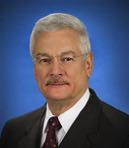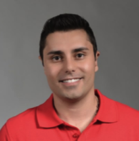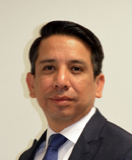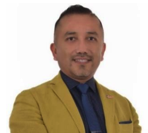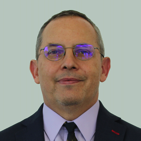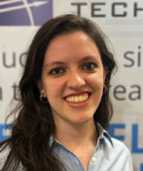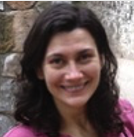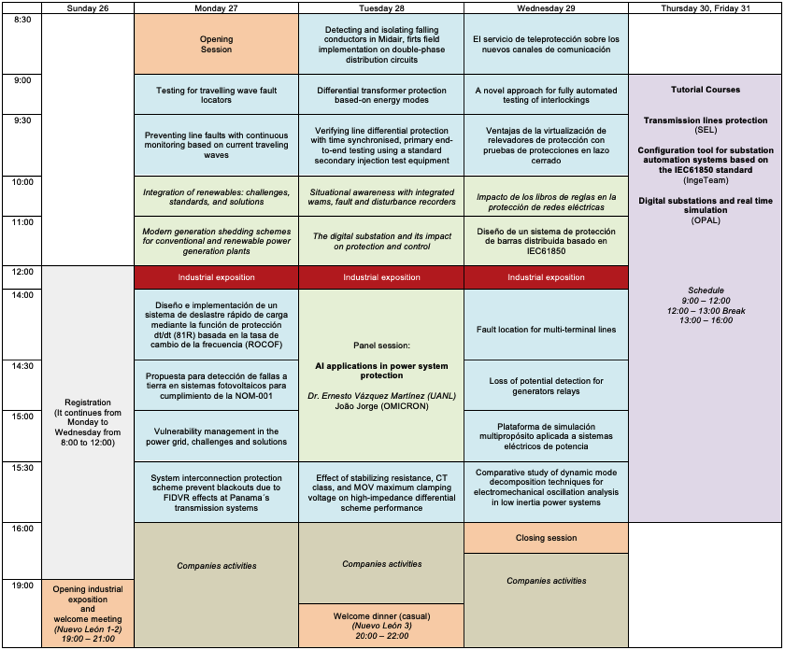Technical Program
Download papers (available from monday may 27)
Monday may 27
Testing for travelling wave fault locators
Preventing line faults with continuous monitoring based on current traveling waves
Vulnerability management in the power grid, challenges and solutions
Tuesday may 28
Differential transformer protection based-on energy modes
Wednesday may 29
El servicio de teleprotección sobre los nuevos canales de comunicación
A novel approach for fully automated testing of interlockings
Ventajas de la virtualización de relevadores de protección con pruebas de protecciones en lazo cerrado
Fault location for multi-terminal lines
Loss of potential detection for generators relays
Plataforma de simulación multipropósito aplicada a sistemas eléctricos de potencia
Conferences
Integration of renewables: challenges, standards and solutions
Speaker: Galina S. Antonova
Galina S. Antonova serves as a Technical Sales Engineer with Hitachi Energy in North America. She has over 25 years of experience in the area of electrical engineering, data communications and time synchronizacurrenttion, which she applied to the electrical power industry. In her role Galina is applying her expertise to substation automation and protective relay applications. Galina received her M. Sc. Degree with Honors in 1993 and a Ph.D. in 1997 in Electrical Engineering and Data Communications from the State University of Telecommunications, St. Petersburg, Russia, and spent one year at University of British Columbia (UBC) on a scholarship from the Russian President. She is actively involved with IEEE PSRC, PSCC and is a Canadian member of the IEC TC57 WG10. Galina also served as a Canadian member of the CIGRE SC D2 and a Technical Committee Member of the previous CIGRE Canada conference hosted in Vancouver. In her spare time Galina enjoys ice dancing, playing piano and growing lavender.
Modern generation shedding schemes for conventional and renewable power generation plants
With the incorporation of both conventional and renewable generation to meet the increase in demand, as well as the delay in adding transmission/distribution infrastructure, it becomes necessary to use Special Protection Systems to avoid blackouts. In this presentation, we will review several experiences in the implementation of these types of systems around the world. We will emphasize modern automatic generation shedding in both conventional and renewable plants, depending on the problem to be solved, the main requirements of telecommunications, and reliable test methods.
Speaker: Pedro Loza
Pedro Loza Bautista received his B.S.E.E. degree in 1998 from the National Autonomous University of Mexico (UNAM). He also obtained a M.Sc. degree in electrical power systems at UNAM. From 1998 to 1999, Pedro worked in the Electric Research Institute in Mexico. In September 2000, he joined Schweitzer Engineering Laboratories where he has worked for nineteen years in two stages as a protection design engineer, field application engineer at Mexico City office, commissioning engineer, and as an electrical studies engineer. He has experience about design, testing, studies, commissioning, and training regarding to electrical power systems, as well as operation and modernization of protection and control schemes of power plants. He has worked on implementation of remedial action schemes in Mexico and other countries. He is currently Special Protection Systems Manager for Latin America.
Situational awareness with integrated WAMS, fault and disturbance recorders
The operation and maintenance of power systems has multiple challenges such as the rapid penetration of renewable energies, limited transmission capacity, the end of useful life of multiple assets and aggressive modernization and digitalization plans in electrical companies. An important support for control centers operators and maintenance personnel is based on complete, adequate, and timely information about failures and other disturbances in the power system, as well as the performance of protection and control functions. Conference reviews the latest technologies that allow us to go beyond traditional concepts of fault register or standalone WAMS systems to create fully integrated systems that serve multiple purposes and provide true situational awareness.
Speaker: Jean León Eternod
Jean León Eternod is the Technology Director for Schweitzer Engineering Laboratories (SEL) International Operations. Prior to joining SEL in 1998, he worked for the Comisión Federal de Electricidad (CFE) power systems studies office in protection and control corporate management. While he was at CFE from 1991 to 1998, he worked with wide-area network protection schemes, single-pole trip and reclose studies, and database validation for short circuit, load flow, and dynamic simulation, including generator and control model validation for most CFE generators. He received his BSEE from the National Autonomous University of Mexico (UNAM), where he also completed postgraduate course work in power systems. He received training in power system simulation from Power Technologies, Inc. He has authored numerous technical papers on the topics of power system protection, simulation, and wide-area protection and control applications.
The digital substation and its impact on protection and control
As interest in digital substations gathers momentum the need for shared experience is crucial to establishing a clear, interoperable direction. This presentation shares digital substation experiences and discusses the impact of digitization following IEC 61850 principles leveraging process bus and engineering tools. It considers how the needed design flexibility can be met in any Protection and Control system in a way which allows the practical construction of working solutions without complex engineering. It looks towards automation functional design based on SSD and ISD files as well as many other benefits.
Speaker: Thiago Nascimento Carreiras
Thiago Carreiras has been working in engineering system, automation, protection and control since graduated as an Electrical Engineer at Paulista University (Unip - 2013 - 5 years course). His academic profile has been enriched with a Post-Graduation in Business Administration and Management at EUDE BUSINESS SCHOOL (Eude - 2019 -1 year course) and now at the same university, he is currently studying a Post-Graduation in Renewable Energy (Eude - 2020 - 1 year course). He is also able to comunicate in Portuguese, English and Spanish working in a multicultural/international environments and using French language although with less proficiency. He has been working since marketing of products until commissioning of Scada systems and multi brand protection relays.
Impacto de los libros de reglas en la protección de redes eléctricas
Some recommendations are presented about how to implement a local Rule Book in countries that have not yet established the requirements for electrical parameters in maximum and minimum limits. Since the late 90's and to date, there has been a gradual implementation within the regions of the planet and in each country of the binding laws of the electricity sector that to a certain extent are voluntary to comply with and trace a benefit of Energy Sustainability and Decarbonization.
Speaker: Luis Ivan Ruiz Flores
Luis Ivan Ruiz Flores was born in Orizaba, Veracruz, Mexico on March 28, 1977. He received his B.S.E.E. degree in 1999 from Orizaba Technological Institute in 1999 and MSc. From Autonomous University of the State of Morelos. From 1999 to 2016 he collaborated as a Technological Development Researcher at the Electrical Research Institute (IIE), today called INEEL. During the IIE he collaborated in projects related to the analysis and design of industrial electrical systems and in the technical specifications for the design of computer systems for electrical equipment and systems for state companies. He was Director of Power and Energy at the company ETAP® in Latin America until September 2022. He was also president of the Morelos Section of the IEEE in the period 2021-2022. He is currently the President of the Power and Energy Chapter (PES) of the Morelos Section from 2023 to 2024. He is the Author and co-author of more than 85 international publications.
Diseño de un sistema de protección de barras distribuida basado en IEC61850
The consolidation of application standards in Substation Automation Systems in recent years, mainly IEC61850, has allowed equipment and software manufacturers for these Systems to propose solutions in which the compatibility of operation, configuration, and diagnosis tools, as well as interoperability between equipment from different manufacturers is possible.
Speaker: Isaac Becerra Urrutia
Isaac Becerra Urrutia received his B.S.E.E. degree in 1999 from Escuela Técnica Superior de Ingeniería Industrial de Bilbao. He has worked at Ingeteam Power Technology since 1995, always dedicated to the Electrical System Automation sector. He has developed his career in different activities, starting as a substation control technician (5 years), later moving on to commercial activity (10 years), where he has been responsible for the market for America, for the United Kingdom and for Companies. Electrical companies of Spain. He has also been responsible for business development for the Medium Voltage market, and responsible for product approval. In recent years he has directed the Substation Automation Systems Backoffice team at a global level, with the main responsibilities of channeling pre-sales activity, providing support to the commercial network, preparing technical-economic proposals for products and systems, and developing the marketing activities related to the sector.
Panel session
AI applications in power system protection.
Speaker: Eng. João Jorge
João Jorge received his B.S.E.E. degree from UFJF (Federal University of Juiz de Fora), Brazil, with emphasis on Electrotechnics, Post-Graduation Lato Sensu on “Power Systems Protection” from Cruzeiro do Sul University in partnership with Integrale Center for Continued Education and Post-Graduation Lato Sensu on “Cyber Security” from Impacta University in partnership with Daryus Institute. He is specialist in Power Systems Protection, Control, Communication, Automation & Testing Solutions (specially in IEC 61850); member of the ABNT Studies Commission responsible to prepare and publish the applicable Brazilian Technical Standards of the ABNT NBR IEC 61850 Series. From 2012 until 2017, he served on ABB Brazil Ltda (Guarulhos), Power Grids division, acting in the area of Grid Automation Products, Plenary Electrical Engineer. From 2018 to 2024, he served on OMICRON Latino America and OMICRON Brazil as Regional Application Specialist for Latino America region and technical responsible for whole secondary testing and monitoring solutions of OMICRON.
Speaker: Dr. Ernesto Vázquez Martínez
Ernesto Vázquez Martínez was born in Tampico, Tamaulipas, México in 1967. He received the B.Sc. degree in Electronic and Communications Engineering and M.Sc. degree from the Universidad Autónoma de Nuevo León, Monterrey, México in 1989 and 1991 respectively. In 1994 received the Ph.D. degrees from the same university with "Methodology to protection operation analysis for fault diagnosis in power systems" as his dissertation topic. He taught 20 undergraduate courses and 70 graduate courses. He has lectured more than 100 postgraduate and training courses in México, Venezuela, República Dominicana, Guatemala, El Salvador and Perú, mainly oriented to power utility engineers in protective relay theory and its operation. He has written or coauthored 125 technical papers and 90 conference papers in México, United States, Denmark, France, Cuba, Colombia, Venezuela, Brasil, Bolivia and Perú. He has a patent about adaptive digital protection. In 2000 he did a one-year research stay in University of Manitoba, Canada, where he was working in traveling wave protection algorithms and in 2011 he did a one-year research stay in University of Alberta, Canada, where he was working in fault resistance algorithms. Dr. Vázquez has been conducting research in power system protection and artificial intelligence application to power system since 1994. Actually is National Researcher Level 1 in México.
Additional speakers we be to confirmed shortly.
Tutorial courses
Transmission line protection
The course presents the fundamental concepts of transmission line protection, with emphasis on the application of digital relays. The course studies directional overcurrent and distance protection of transmission lines. Next, the pilot protection of transmission lines is studied, in its modalities of directional comparison, phase comparison, and differential protection. Finally, new time domain protection principles using incremental quantities and traveling waves are presented.
Speaker: Dr. Héctor J. Altuve Ferrer (SEL México)
Héctor J. Altuve received his B.S.E.E. degree in 1969 from the Central University of Las Villas in Santa Clara, Cuba, and his Ph.D. degree in 1981 from Kiev Polytechnic Institute in Kiev, Ukraine. From 1969 until 1993, Dr. Altuve served on the faculty of the Electrical Engineering School at the Central University of Las Villas. From 1993 to 2000, he served as professor of the Graduate Doctoral Program in the Mechanical and Electrical Engineering School at the Autonomous University of Nuevo León in Monterrey, Mexico. In 1999 through 2000, he was the Schweitzer Visiting Professor in the Department of Electrical and Computer Engineering at Washington State University. Dr. Altuve joined Schweitzer Engineering Laboratories, Inc. (SEL) in January 2001, where he is currently a distinguished engineer and dean of SEL University. He has authored and coauthored more than 100 technical papers and several books and holds four patents. His main research interests are in power system protection, control, and monitoring. Dr. Altuve is an IEEE fellow.
Configuration tool for substation automation systems based on the IEC61850 standard
Main advantages of the IEC61850 standard is the definition of a standardized format for the configuration language of substation system components, with the aim of achieving interoperability of these regardless of the manufacturer. In this course we will focus on this Substation Configuration Language (SCL) describing the structure, configuration parameters and communications of an IED and the IEC61850 network of the installation.
Speaker: Viridiana Ortiz Chávez
Viridiana Ortiz Chávez received her B.S.E.E. degree in control and automatization from Escuela Superior de Ingeniería Mecánica y Eléctrica del Instituto Politécnico Nacional, México. From 2017, she joined to Ingeteam Power Technology México and she works in Power Grid Automation. In the last seven years, she is currently focused on substation control as Project Manager.
Digital substations and real time simulation
This tutorial will aim to address the topic of digital substations and real-time simulation with OPAL-RT systems, the course explains concepts, applications, and an example of real-time simulation of the electrical layer of the network considering the integration of communication protocols used in the area of electrical systems.
Speaker: Thais Marzalek Blasi
Thais Marzalek Blasi received her B.S.E.E. degree in 2017 from Universidad Federal de Paraná, Brazil, and her M.Sc. in Electrical Engineering in 2020 from same institution. Her project was developedin Technische Hochschule Ingolstadt (THI) Germany, in 2018, in collaboration with Institut für neue Energie-Systeme (InES). She received her Ph.D. degree in 2024 from Universidad Federal de Paraná, Brazil, in microgrids and integration of DER. From 2018 she is member of CIGRE Committee C6. Since 2022 she works in OPAL-RT Technologies application engineering focused in real-time simulation solutions.
